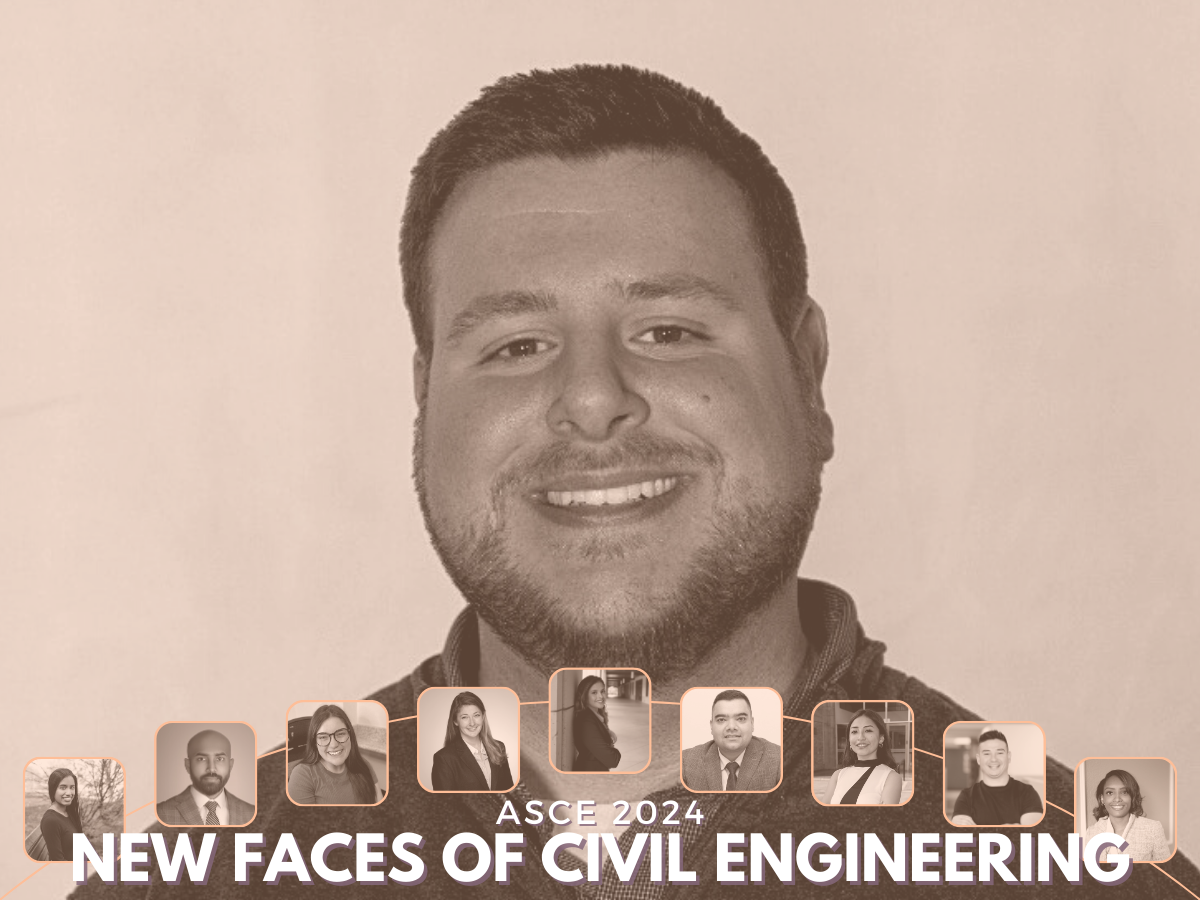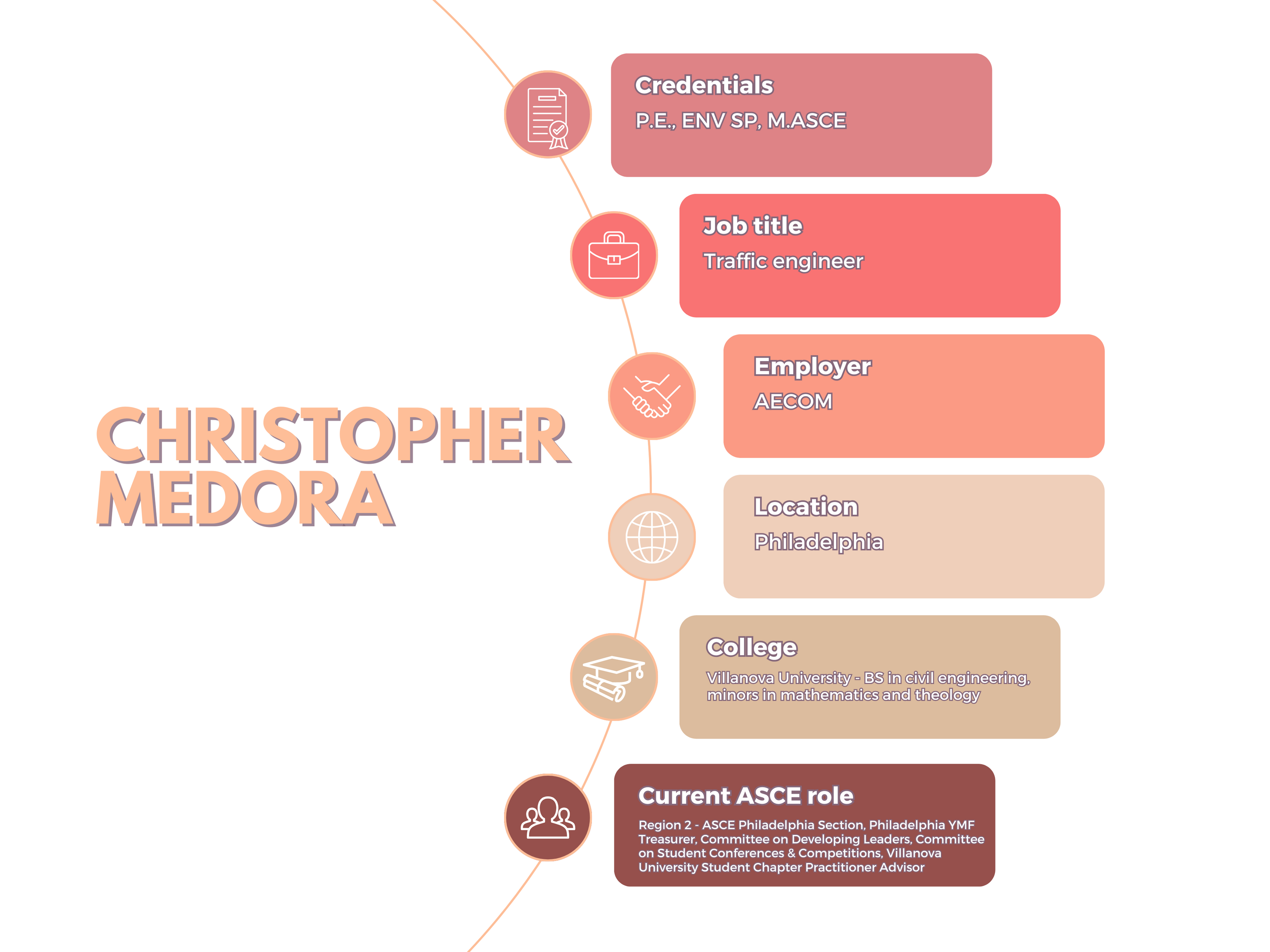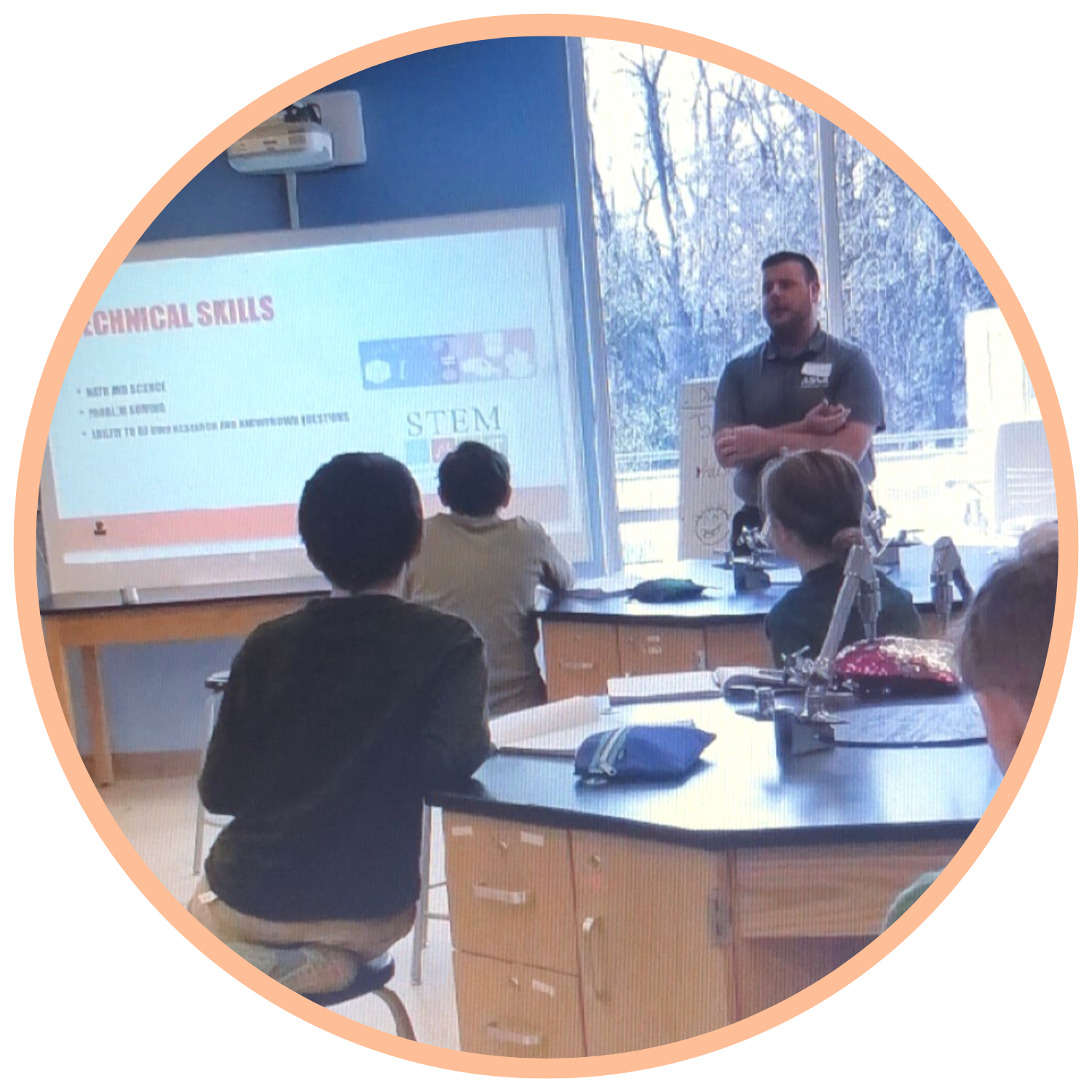

Christopher (better known as Chris or CJ) Medora isn’t very old. But he’s been doing outreach work long enough that one can imagine that all the civil engineering students in Philadelphia-area universities were inspired to join the profession because of an event he attended or helped organize when they were in middle school.
OK, maybe not every student. His impact has been large, though.
“I think about it every so often,” said Medora, considering what some of the younger students he’s talked to or worked with have gone on to do. “But we can also see the positive impacts we have on the students even if they don’t end up as civil engineers. They still know that they could do something that they might not have originally challenged themselves to do.”
Medora has been a longtime volunteer with the American Society of Highway Engineers, the Association of Pedestrian and Bicycle Professionals, and the Institute of Transportation Engineers. His ASCE participation is particularly remarkable, including a dozen different leadership roles over the years. He’s served as the Villanova University practitioner advisor since 2018 and is treasurer for the Philadelphia Younger Member Group this year.
And then of course there are the many, many outreach events – and all the students who often are as inspiring in their potential as the professionals there to help them. Medora remembers one such student at a science fair at the Franklin Institute about five years ago.
“She was interested in architecture. And I asked her if she had ever heard about civil engineering. She hadn’t, so we basically introduced her to structural engineering, describing that she could take her passion for architecture that she already had, take her talent for math and science, and she could be a structural engineer.
“Those are just fun experiences. You can see how passionate the kids are, and the students really do hang onto every word you’re able to share with them.
“In those moments, you think, ‘Wow, I’m really in the right place. This is what I should be doing.’”
ASCE has honored Medora as a 2024 New Face of Civil Engineering.
He recently spoke with Civil Engineering Source about his career.

Civil Engineering Source: What’s the accomplishment or aspect of your career so far that you’re most proud of?
Christopher Medora: It is a tough question for sure, but I guess after thinking about it a little bit, I would have to say that passing the P.E. exam has been one of my proudest moments so far.
It was actually quite a journey. It took me a long time. I mean, overall, in terms of my career, I did pass in a timely manner at a young age. But the way it all happened felt like a big journey.
The first time I took it, it was pretty difficult in the sense of me trying to do a lot of things and balance my personal life at the same time. Plus, just not being a good test-taker made it so overwhelming. I sat down for the exam, and obviously I did the best I could, but I didn’t pass. So it was pretty stressful.
I scheduled the retake for the middle of April of last year. The weekend before my exam, my fiancée was on a work trip. And she calls and says she has COVID.
And I feel like having that distraction of being down there and making sure that she was OK, I think that actually made it less stressful on the exam day for me.
I was just super-grateful to pass. I knew what to expect on the day they release the results, and so 9 o’clock rolls around, and I’m wondering why my results haven’t been posted yet. Just nervous. But they got posted mid-morning.
And honestly, I wasn’t surprised. I was very confident in myself. I just was suppressing that confidence, because I didn’t want to give myself false hope.
It was definitely a nice rush of emotion. I was just overjoyed.
I literally turned my screen – because we share an office at home – toward Katie, my fiancée. She was on a phone call, and I’m just showing her my exam results with happy tears on my face. It was just a nice moment.
And, you know, all of us have friends that are like, “Oh yeah, the P.E. was easy. I passed the first time. You have nothing to worry about.”
But that wasn’t the experience for me. And now, by passing the P.E., it almost feels like it opened doors for me in the sense of where my career can go.
It’s nice because it reaffirms what I’ve built over the last couple years gaining confidence in myself and my own technical abilities. And once I passed, I noticed a difference in how much more seriously I was taken among my peers. I truly don’t believe that I would be one of the youngest task leaders on my team without having my license.
Source: As you look at all your ASCE activities over the years, you’ve seemed very open about sharing your story – even if that means sometimes sharing your failures. Do you think that’s true? And what motivates your volunteer work?
Medora: I would agree. I try to share my story.
Part of the reason I love volunteering is that I went to a local Catholic high school in the Philadelphia area, and it was a fine education. But in terms of STEM, when I went to college at Villanova University, I was behind.
I could see classmates who were from Delaware County, where I’m from, and they were light years ahead of me. And I don’t think it was that they were naturally more intelligent than me. They just had that foundation of good mathematics and science, and you could see the difference.
I think sharing with people that you can always rebound or catch up is very important. Let them know if you don’t like where you are, you can keep trying. There’s no reason to not keep putting your best foot forward.
And I think when it comes to outreach, especially in the Philly area, sometimes people wouldn’t consider civil engineering as a profession because they think, “Well, I’m struggling in math right now.”
But I can always give the example of myself. I did well, but it’s not like I was at the top of my class. I struggle with taking exams, but I enjoy what I do and I think if it’s something that interests you, you would enjoy it too.
Having that passion for the profession that you’re in, I think, makes your job easier. It makes me – I don’t want to sound cliché – fight a little bit harder to be better, to show that not only am I passionate about it, but I can provide the results that my team and our clients are looking for.
By being open with some of the struggles I’ve gone through allows other people to see that the door into the profession is open for them. So that’s why I like to volunteer.
And honestly, I like volunteering just in general. It really started for me in middle school. I started working at our local food pantry, and I felt a sense of pride in the work that I was doing and I could see the positive impact I had on my community was pretty immediate.
So, doing civil engineering outreach to students, whether they’re in elementary school, middle school, high school, or even local university students, I can still share my story. I can introduce younger students to the profession, and I can still feel a sense of pride in what I do.
Source: What kind of impact do you hope to make on the profession?
Medora: I hope to inspire other engineers to become advocates for the people they work for and the communities they work in.
Getting projects done on time, doing them under budget, it’s extremely important. But working on the right projects for the people who actually rely on the infrastructure that we design, I believe that’s the most important thing that we can do as civil engineers.
I’ve had the privilege to work on a project that was actually at the request of the community that lived there. The community wanted a way to slow down drivers and to improve pedestrian and bicyclist safety. I remember being in a public meeting and one of the women there said that her friend – one of the older community leaders – had tried to cross the street to go to the corner store and got hit and killed by a driver going way too fast. So this project was very, very personal to them.
As the designer, we were advocating for that community, every meeting with our client justifying these safety improvements that we were proposing by backing them up with analysis. And just to their advocate through our ability to do our job as an engineer – that’s the kind of impact I want to have on the profession.
Source: It’s interesting because what you’re doing is so technical in nature, but you can see such a personal side too with a story like that.
Medora: Yeah, it makes me a better engineer when I think about those kinds of things.
When another engineer tells me, “OK, that meets the standard. We don’t have to go any further in our design; we don’t have to make it any safer,” I can justify why I went further and safer in my design.
Just look at the actual personal, human impact we have.



